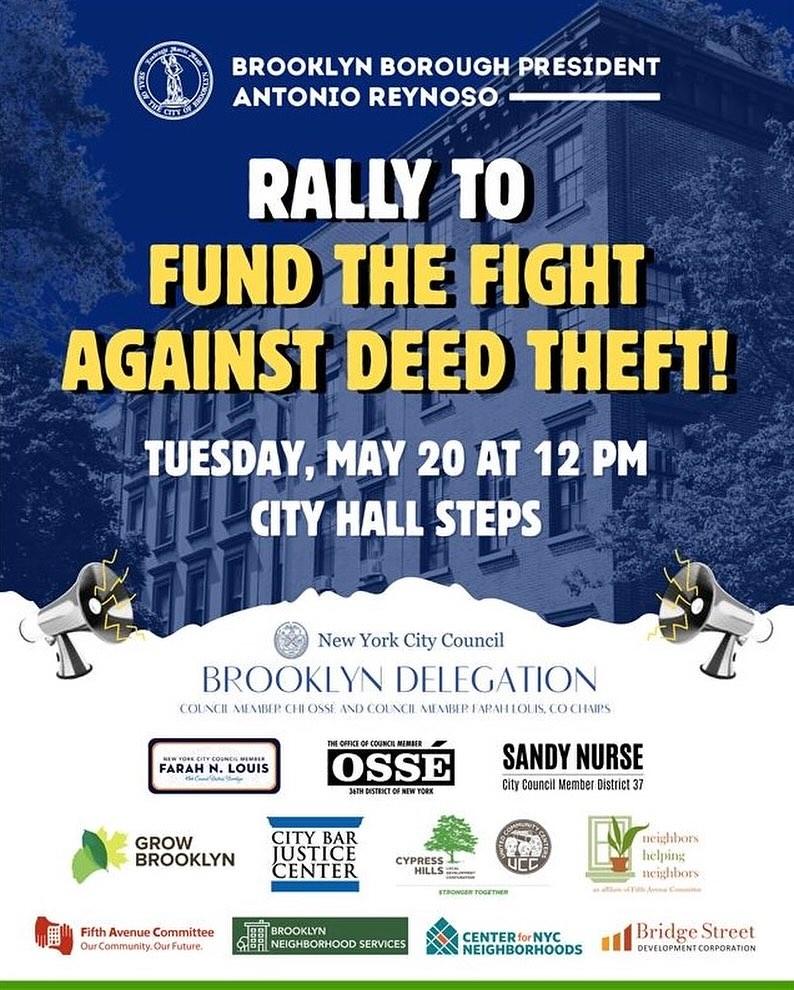Brooklyn Pushes for $5 Million Investment to Combat Rising Deed Theft Crisis
Unveiling the Surge in Deed Theft Affecting Brooklyn’s Most Vulnerable
Brooklyn representatives are raising urgent concerns over a sharp increase in deed theft, a fraudulent practice disproportionately harming elderly, immigrant, and low-income homeowners. Exploiting gaps in the legal system and administrative delays, perpetrators manipulate or coerce these residents into relinquishing their property rights, often resulting in displacement and community disruption. Lawmakers stress that current protections fall short and advocate for substantial funding to shield New Yorkers from these predatory acts.
The proposed $5 million funding is designed to:
- Provide legal aid to homeowners at risk
- Launch educational campaigns to increase public vigilance
- Empower housing authorities with stronger enforcement capabilities
- Upgrade technology for more accurate and timely property record management
Without these resources, experts warn the problem will escalate. As one council member remarked, “Deed theft is a deceitful and unethical crime that targets those least equipped to defend themselves.” This initiative aims to establish a robust defense network to preserve homeownership and community cohesion throughout Brooklyn.
How Legal Vulnerabilities Fuel Property Fraud in Brooklyn
Legal experts have identified critical systemic flaws that fraudsters exploit to carry out deed theft in Brooklyn. Outdated property transfer procedures and insufficient verification processes create opportunities for criminals to falsify documents and unlawfully claim ownership, with elderly and economically disadvantaged homeowners bearing the brunt. Delays in public registry updates further hinder timely detection of fraudulent transactions.
Common deceptive methods include:
- Forging notarized signatures on property deeds
- Taking advantage of weak identity checks during title transfers
- Manipulating electronic filing systems to submit fraudulent claims
| Type of Exploit | Consequences | Recommended Reforms |
|---|---|---|
| Forgery of Signatures | Illegitimate property ownership changes | Implement biometric identity verification |
| Verification Deficiencies | Unauthorized deed submissions | Introduce real-time audits of registry entries |
| Registry Processing Delays | Slowed fraud detection and response | Streamline electronic processing workflows |
City Council Called to Fund Comprehensive Prevention and Awareness Programs
Brooklyn officials are urging the City Council to allocate $5 million to combat the growing menace of deed theft, which they describe as both immoral and deceptive. Advocates highlight that without significant investment, vulnerable groups—especially seniors and marginalized communities—remain at high risk of losing their homes. The funding would support expanded prevention initiatives and educational outreach to empower residents with knowledge and tools to identify and avoid scams.
- Targeted community workshops in neighborhoods with high incidence rates
- Multilingual educational resources to overcome language barriers
- Collaborations with local nonprofits for grassroots engagement
- A dedicated hotline offering immediate assistance and reporting
| Program Element | Allocated Budget | Expected Outcome |
|---|---|---|
| Educational Workshops | $1.8 million | Engage over 10,000 residents |
| Outreach Materials | $900,000 | Produce multilingual brochures and videos |
| Community Partnerships | $850,000 | Collaborate with 15 local nonprofits |
| Hotline & Support Services | $450,000 | Handle 500+ cases annually |
Lawmakers caution that unchecked deed theft threatens not only individual homeowners but also the overall stability of Brooklyn’s housing market. They urge the City Council to act swiftly and endorse this comprehensive strategy as a critical investment in community protection.
Recommendations for Strengthening Legal Safeguards and Community Engagement
Advocates stress the necessity of fortifying legal protections to shield vulnerable homeowners from deed theft, which has become an escalating issue in Brooklyn. Current legislation lacks the clarity and enforcement power needed to deter bad actors who exploit loopholes and employ deceptive tactics to unlawfully acquire properties. Enhancing laws with explicit definitions of fraudulent intent and tougher penalties could significantly improve homeowner defenses and serve as a stronger deterrent.
In tandem with legal reforms, community leaders call for expanded outreach efforts focused on educating at-risk populations—particularly elderly and immigrant homeowners—about deed theft. Proposed measures include:
- Workshops teaching how to identify and prevent real estate fraud
- Accessible, multilingual legal support services
- Collaborations between municipal agencies and neighborhood groups to distribute resources and issue timely alerts
These combined approaches are vital to bridging information gaps and empowering residents to protect their homes from predatory schemes.
Conclusion: A Critical Juncture in Brooklyn’s Fight Against Property Fraud
As Brooklyn lawmakers intensify their push for a $5 million City Council investment to tackle deed theft, the focus remains on safeguarding vulnerable homeowners from exploitative practices. With increasing public awareness and mounting pressure on officials, this proposed funding aims to enhance legal protections and expand community outreach. The City Council’s response will be pivotal in curbing property fraud and restoring confidence in Brooklyn’s real estate market.













